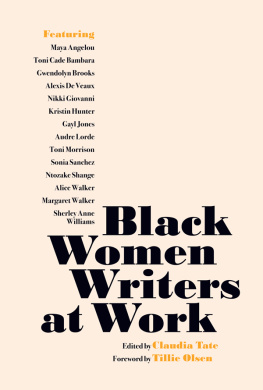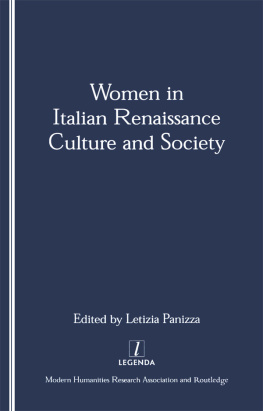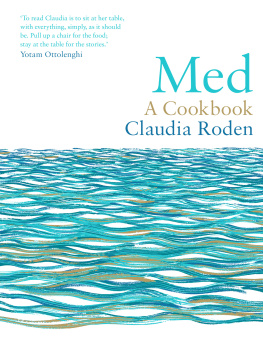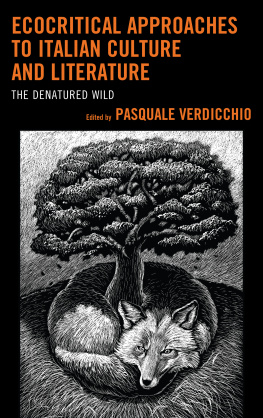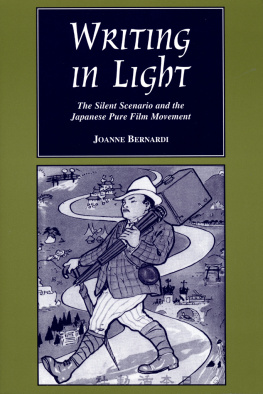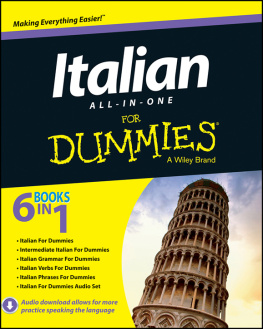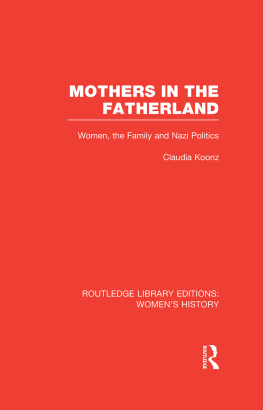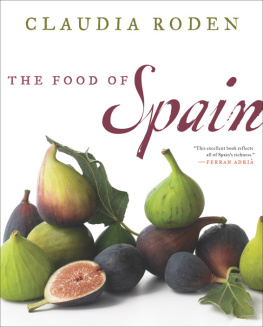Claudia Bernardi is a Senior Lecturer in Italian at Victoria University of Wellington, New Zealand. She holds a PhD in Italian from the University of Bath, UK. Her research focuses on contemporary Italian fiction, in particular twentieth-century women writers. She has published widely on the works of Silvia Ballestra. Her more recent research has focused on the representation of gender, sexuality and national identity in popular fiction and cinema, with articles on womens crime fiction and Italian film noir.
Pia L. Bertucci holds a PhD in Romance Languages from the University of North Carolina at Chapel Hill and is, since 2010, Director of the Italian Program at the University of South Carolina. Her current research interests and publications focus on Italian food culture and Italian women writers. Currently, she is completing a textbook on Italian language and culture, Illumina: Nuovo Corso di Lingua e Cultura Italiana , that will be published in 2020.
Francesca Calamita is Assistant Professor and College Fellow at the University of Virginia where she teaches Italian Studies and collaborates with the Department of Women, Gender and Sexuality. Author of a monograph ( Linguaggi dellesperienza femminile , 2015), a co-edited volume ( Starvation, Food Obsession and Identity , 2017) and a number of articles in the areas of transnational gender issues, she holds a PhD from Victoria University of Wellington and carried out her postdoctoral project at the Centre for the Study of Contemporary Womens Writing, University of London.
Danielle Callegari (PhD, New York University) is Assistant Professor in the Department of French and Italian at Dartmouth College and Councillor for the Dante Society of America. Her research focuses on Italian literature and food and wine studies. She has published on a variety of subjects including Dante, medieval food and wine culture, early modern womens writing and religion, and modern Italian food and politics. Her first monograph, Dantes Gluttons: Food and Society in Medieval Italian Literature , is forthcoming.
Luca Cottini is Associate Professor of Italian Studies at Villanova University. He holds a PhD in Romance Languages and Literatures from Harvard University. His research focuses on Italian literature, culture and social history of the nineteenth and twentieth centuries. He has published several scholarly articles (among others, on silent cinema, DAnnunzio, Palazzeschi, De Amicis, Fenoglio) and two books, on Italo Calvino (2017) and the birth of industrial design in Italy (2018).
Daniele De Feo is Lecturer in the Department of French and Italian at Princeton University where he teaches Italian Studies and the course Literature of Gastronomy. He holds a PhD from Rutgers University, and his publications focus on the nineteenth-century European discourse of taste, both in its sensorial and its metaphorical significance, and consider the contribution of literary, philosophical and culinary writings in their ability to challenge aesthetic and social boundaries.
Rossella Di Rosa holds a PhD in Italian from Rutgers University. She currently teaches Italian at the University of Georgia. Her academic interests focus on Italian modern and contemporary literature, material ecocriticism, posthumanism and gender studies. She has published several articles on Giacomo Leopardis proto-ecological conception of nature, on the influence of Mara Zambranos philosophical thought in the works of Anna Maria Ortese and Elsa Morante, and on the relationship between human and non-human animals in Italian womens writing.
Teresa Di Somma is an Italian researcher based in Joo Pessoa, Paraba, Brazil, with academic interests in postcolonial literatures and cultural studies. She recently got her MRes at the Graduate School of Literatures, Languages and Identities (PPGLI) of the Universidade Federal do Acre, in Brazilian Amazonia, with a dissertation on the Sanremo Music Festival. On that occasion, she pursued a study on the representations of race, gender and disability within the famous song contest. She collaborates with the Brazilian journals Muiraquit and Tropos .
Niki Kiviat is a PhD candidate in Italian Studies at Columbia University. Her dissertation focuses on the continuities and ruptures in Italys filmic foodscape from 1954 to 1973. Her research interests include star studies, the continuities of fascism and neorealism in post-war media and representations of disordered eating. She is the co-editor of (In)digestion in Literature and Film: A Transcultural Approach (forthcoming).
Laura-Marzia Lenci is Assistant Academic Director and Internship Coordinator at Boston University, Italy programs. She holds a PhD in Italian Literature from the University of Verona with a dissertation on Luigi Malerba. She teaches Italian Migrant Literature, and her researches currently focus on Luigi Malerba and Gianni Rodari poetics, and the representation of the identity in migrant Italian writers. She has published several articles in these fields. She recently worked on a research project financed by Boston University on the assessment of the learning outcomes of American university programs abroad.
Marcello Messina is a Sicilian composer and academic based in Joo Pessoa, Paraba, Brazil. He holds a PhD in composition from the University of Leeds (UK), and is currently Professor Visitante Estrangeiro at the Universidade Federal da Paraba. He has been recipient of the Endeavour Research Fellowship at Macquarie University, Sydney, Australia, and of the PNPD/Capes postdoctoral bursary at the Universidade Federal do Acre, Brazil.
Maria Morelli is Marie Sklodowska-Curie Fellow at the University of Milan, Italy, and acts as Expert Evaluator for the European Commission. She holds a PhD from the University of Leicester, UK, and has taught Italian literature and language at the University of Leicester and at Wheaton College, USA. She has published several articles and book chapters on gender, sexuality and embodiment in Italian womens literature and theatre, co-edited the volume Women and the Public Sphere in Modern and Contemporary Italy (2017) and published the edited collection Il teatro cambia genere (2019). Her monograph, Queer(ing) Gender in Italian Womens Writing , is forthcoming.
Maria Grazia Scrimieri is an Italian language assistant and she holds a PhD in Langue, littrature et civilisation italiennes from the Universit Cte dAzur (Nice), France. She focuses on contemporary Italian fiction, in particular twentieth-century women writers, on representations of food in Italian family novels and in the novels of the Resistance. Her latest publications have examined the works of Dacia Maraini, Clara Sereni and Rossana Campo.
Giovanna Summerfield is a Professor of Italian and French and Associate Dean in the College of Liberal Arts at Auburn University. She holds a PhD in Romance Languages and Literatures with a minor in European and Mediterranean History from the University of Florida. Her research focuses on the long eighteenth-century French and Italian (with emphasis on Sicily) literature, womens studies, Mediterranean studies and religious movements. She is also a published poet and short-story writer.




